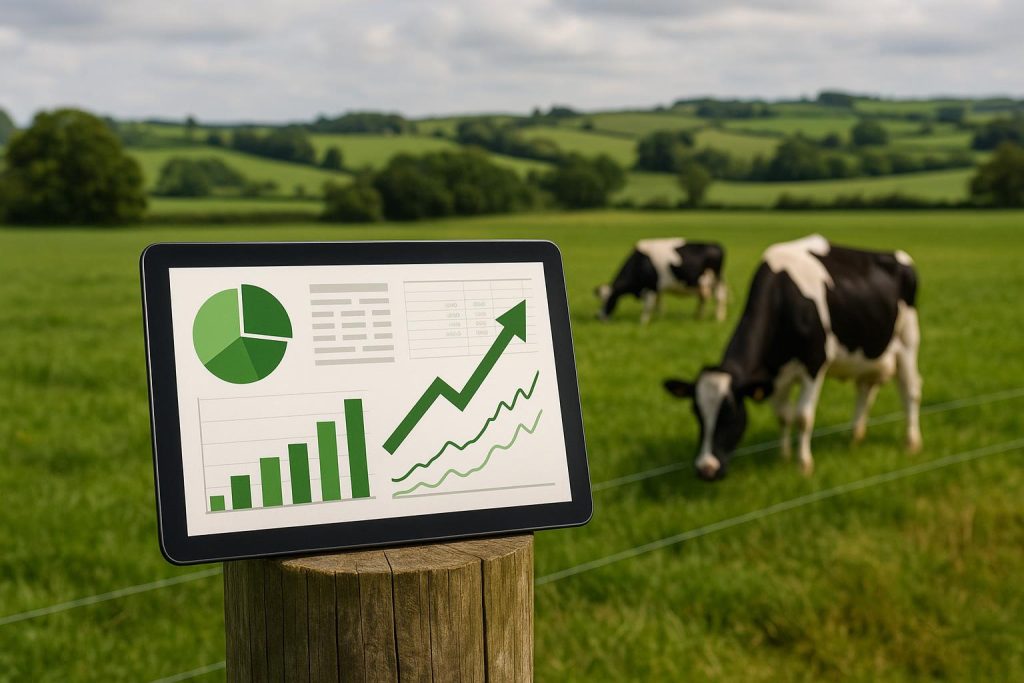Running a profitable farm in the UK has never been more complex. Between fluctuating commodity prices, changing subsidy rules, labour shortages, and the increasing cost of inputs, farmers face a constant balancing act between production, efficiency, and sustainability. That’s where farm business consultants come in. These professionals bring a blend of financial insight, strategic planning, and industry experience to help farmers identify opportunities for growth, cut unnecessary costs, and ultimately improve profit margins.
Understanding the Modern Farming Challenge
The days when farming success depended solely on yields are long gone. Today, a profitable farm operates like a well-managed business — one that analyses costs, forecasts demand, and invests wisely in technology and people. Yet many farmers are so focused on day-to-day operations that long-term financial strategy takes a back seat.
This is where independent advice can make a real difference. By taking an objective look at business performance, consultants help farmers see beyond immediate challenges and focus on sustainable profitability.
Financial Analysis and Cost Control
One of the first steps in improving profit margins is understanding exactly where money is being made — and lost. Consultants use benchmarking tools to compare performance against similar farms, highlighting areas of inefficiency that might otherwise go unnoticed.
For example, they can identify whether machinery costs are disproportionately high, whether labour hours are being used efficiently, or if there’s room to negotiate better prices for inputs such as feed, seed, or fertiliser.
By scrutinising these figures, consultants often uncover savings that directly improve the bottom line. Even small percentage improvements in cost efficiency can make a significant difference, particularly in sectors where margins are tight.
Diversification and Alternative Income Streams
In recent years, diversification has become one of the most effective ways for UK farms to boost profitability. From renewable energy projects and farm shops to tourism and contract services, alternative revenue streams can help smooth out the volatility of agricultural markets.
A consultant’s role here is to assess which options are realistic and financially viable. They analyse factors such as location, infrastructure, market demand, and available capital before recommending a strategy. The aim is not to chase every opportunity, but to choose the ones that complement the farm’s core business.
For example, a livestock farm with spare land might benefit from a solar installation, while an arable business near a major town might see success with an on-site retail venture. Each project requires careful planning, and professional advice can prevent costly missteps.
Strategic Planning and Long-Term Vision
Another key contribution consultants make is in developing a long-term strategy. This involves setting realistic business goals, identifying key performance indicators (KPIs), and creating a roadmap for achieving them.
Many farms operate year-to-year, reacting to short-term market pressures rather than planning for the future. A well-structured business plan, built with professional guidance, helps farmers manage risk, attract investment, and take advantage of government grants or environmental schemes.
Moreover, succession planning — ensuring the next generation can continue the business smoothly — is an area where consultants offer significant value. They can assist in managing tax implications, restructuring ownership, and balancing family and business priorities.
Making Better Use of Technology
Modern farming technology offers huge potential for improving efficiency, but not all investments deliver the same return. Consultants can help farmers assess which innovations truly add value.
Whether it’s precision agriculture tools that optimise fertiliser use, data systems that track livestock performance, or accounting software that simplifies cashflow management, adopting the right technology can lead to measurable gains. Importantly, consultants ensure these tools integrate into the wider business plan, rather than becoming expensive standalone projects.
Navigating Regulation and Environmental Change
UK farmers face a growing web of environmental and regulatory requirements. From carbon accounting to biodiversity net gain, the rules around land use are evolving quickly. Consultants keep up to date with these changes, helping farmers stay compliant while finding ways to turn obligations into opportunities.
For example, schemes that reward environmental stewardship or carbon reduction can add new income streams, provided the farm is structured and documented correctly. Professional advice ensures compliance while maximising the financial return.
Improving Profit Without Compromising Sustainability
Sustainability and profitability are no longer at odds. In fact, efficient use of resources often leads to both environmental and economic gains. Consultants help farmers identify ways to reduce waste, improve soil health, and optimise inputs — all of which contribute to a more resilient, profitable business.
By aligning sustainability goals with financial performance, farms can position themselves strongly in a marketplace that increasingly values ethical and environmentally responsible production.
The Value of an Outside Perspective
Perhaps the greatest advantage of working with a consultant is objectivity. It’s easy to become entrenched in familiar routines and overlook opportunities for improvement. A fresh pair of eyes, backed by experience and data, can highlight changes that lead to lasting benefits.
Farm business consultancy isn’t just about spreadsheets — it’s about helping farmers build robust, adaptable businesses that can thrive in a rapidly changing world.
Final Thoughts
Improving farm profitability is rarely about a single big change. Instead, it’s the result of many small, well-informed decisions that add up over time. By combining financial expertise, strategic insight, and a deep understanding of agriculture, consultants help UK farmers unlock their full business potential.
In an industry where every penny counts, their guidance can make the difference between simply surviving and truly succeeding.

